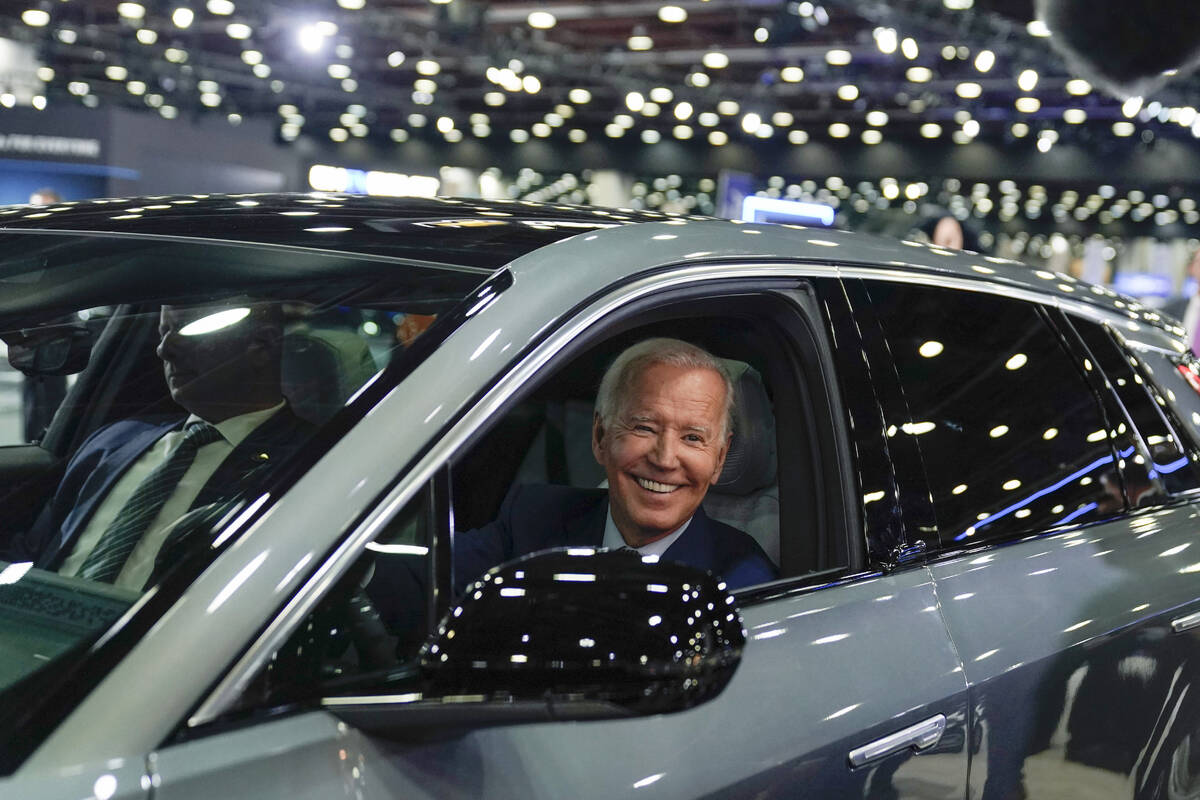VICTOR JOECKS: New EVs go for used prices at Las Vegas auction

What happened recently at a Las Vegas car auction highlights why Transportation Secretary Pete Buttigieg is wrong about electric vehicles.
On Tuesday, Buttigieg gave an interview defending the Biden administration’s new mandates for EV production. In practice, the EPA’s new emissions rules will require that around two-thirds of new vehicles be electric or hybrid by 2032. That’s not too far off.
“The automotive sector is moving towards EVs, and we can’t pretend otherwise,” Buttigieg said to justify the government edict.
Of course it is. The automotive sector doesn’t have a choice. The federal government is forcing car companies to increase EV production. In addition, nine states have committed to banning new gasoline-powered cars by 2035. Governments have also lavished tens of billions of dollars and special privileges on EV buyers.
But consumers do have a choice — at least for now. The evidence is piling up that the supply of EVs has far exceeded the public’s interest. Last week, Ford announced it was cutting two-thirds of workers at a plant producing its electric F-150 truck. This year, GM’s first-quarter EV sales fell by around 20 percent compared to 2023. In February, a CNN article labeled EVs “a massive disappointment.”
As EVs pile up unsold, some resort to extreme measures to get rid of them. I obtained a post-sale report from a March 22 auction held by Manheim Nevada. It listed 20 Hyundai Ioniq 6s, which Car and Driver rated as its No. 1 electric car. The retail price starts at $38,650.
These 20 vehicles had odometer readings ranging from five to nine miles. Yet these barely driven EVs sold for between $25,000 and $26,200 — a massive discount.
This reality doesn’t keep Buttigieg from scoffing at the skeptics.
“Sometimes when these debates happen, I feel like it’s the early 2000s and I’m talking to some people who think that we can just have landline phones forever,” Buttigieg said.
This analogy actually cuts against Buttigieg’s argument. See if you can spot the differences between cellphones and EVs.
For one, cellphones provide functionality that landlines lack. You can take a cellphone with you wherever you go, send texts and take pictures. Smartphones eventually put the internet in your pocket.
EVs don’t offer that level of upgrade. In many ways, they’re a less functional product. Just ask those who have taken an EV on a long road trip or had their EV battery die in cold weather.
In addition, government bureaucrats didn’t have to mandate that people buy cellphones while providing market-distorting subsidies to boost the new technology. Apple didn’t auction iPhones off at cut-rate prices. People flocked to them because they were an obvious improvement.
Finally, the government isn’t seeking to ban landlines or set an artificial limit on the number allowed. The market drove the transition, and many people still have a landline.
Right now, consumers don’t want this many EVs. Look at the Ionic 6s just sold in Las Vegas.
Political elites, such as President Joe Biden and Buttigieg, don’t care. If you want to drive your way, you’ll need to drive them out of office.
Contact Victor Joecks at vjoecks@reviewjournal.com or 702-383-4698. Follow @victorjoecks on X.